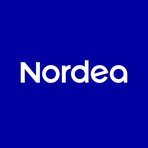Nordea Bank's Strategic Share Buyback: A Closer Look
June 18, 2025, 1:14 pm
In the world of finance, share buybacks are like a magician's trick. They can create value out of thin air. Recently, Nordea Bank Abp, a major player in the Nordic banking sector, has been making headlines with its aggressive share repurchase program. This move is not just a routine transaction; it’s a strategic play aimed at boosting shareholder confidence and optimizing capital.
On June 12, 2025, Nordea announced a buyback program worth up to EUR 250 million. This decision came after the bank received authorization from its Annual General Meeting. The buyback is a response to market conditions and a way to enhance shareholder value. It’s a clear signal that Nordea is committed to returning capital to its investors.
The mechanics of the buyback are straightforward. On June 16 and June 17, 2025, Nordea executed two rounds of repurchases. The numbers are telling. On June 16, the bank bought back 288,878 shares at an average price of EUR 12.53, totaling approximately EUR 3.62 million. The following day, it acquired 290,335 shares at an average price of EUR 12.46, again totaling around EUR 3.62 million. These transactions were conducted across various trading venues, including XHEL, XSTO, and XCSE.
Why does this matter? Share buybacks can signal to the market that a company believes its stock is undervalued. It’s like a vote of confidence. When a company buys back its shares, it reduces the number of shares outstanding. This can lead to an increase in earnings per share (EPS), making the stock more attractive to investors. In a competitive banking landscape, this is crucial.
Nordea’s decision to repurchase shares also reflects its strong financial position. The bank is not just sitting on its cash reserves; it’s actively using them to create value. After the transactions, Nordea held 579,213 treasury shares for capital optimization and maintained a significant number of shares for remuneration purposes—10,299,096 shares. This dual approach shows a balanced strategy: rewarding shareholders while ensuring adequate compensation for employees.
The timing of these buybacks is also noteworthy. In a world where interest rates are fluctuating and economic uncertainty looms, companies must be strategic. Nordea’s buyback program comes at a time when many banks are grappling with rising costs and regulatory pressures. By repurchasing shares, Nordea is not only signaling strength but also positioning itself for future growth.
Moreover, the regulatory framework governing these transactions is robust. Nordea’s buybacks comply with Regulation No. 596/2014 of the European Parliament and Council, ensuring transparency and fairness in the market. This adherence to regulations adds a layer of credibility to the bank’s actions. Investors can trust that Nordea is operating within the legal boundaries while pursuing its strategic goals.
In the broader context, share buybacks have become a common practice among corporations. They are often viewed as a way to return excess cash to shareholders. However, critics argue that buybacks can sometimes prioritize short-term gains over long-term investments. Companies may choose to buy back shares instead of investing in growth opportunities, such as research and development or expansion.
Nordea seems to be walking a fine line. While it is returning capital to shareholders, it is also maintaining a healthy balance sheet. The bank’s management understands the importance of investor sentiment. In a volatile market, maintaining shareholder trust is paramount. By executing these buybacks, Nordea is reinforcing its commitment to its investors.
Looking ahead, the impact of these buybacks will unfold over time. Investors will be watching closely to see how these actions affect Nordea’s stock price and overall market performance. The banking sector is notoriously unpredictable, and Nordea’s ability to navigate these waters will be tested.
In conclusion, Nordea Bank’s recent share buyback program is a strategic maneuver designed to enhance shareholder value and optimize capital. By repurchasing shares, the bank is sending a clear message: it believes in its future and is committed to rewarding its investors. As the financial landscape continues to evolve, Nordea’s actions will be a case study in balancing immediate returns with long-term growth. The magic of finance lies in such strategies, where calculated risks can lead to substantial rewards.
On June 12, 2025, Nordea announced a buyback program worth up to EUR 250 million. This decision came after the bank received authorization from its Annual General Meeting. The buyback is a response to market conditions and a way to enhance shareholder value. It’s a clear signal that Nordea is committed to returning capital to its investors.
The mechanics of the buyback are straightforward. On June 16 and June 17, 2025, Nordea executed two rounds of repurchases. The numbers are telling. On June 16, the bank bought back 288,878 shares at an average price of EUR 12.53, totaling approximately EUR 3.62 million. The following day, it acquired 290,335 shares at an average price of EUR 12.46, again totaling around EUR 3.62 million. These transactions were conducted across various trading venues, including XHEL, XSTO, and XCSE.
Why does this matter? Share buybacks can signal to the market that a company believes its stock is undervalued. It’s like a vote of confidence. When a company buys back its shares, it reduces the number of shares outstanding. This can lead to an increase in earnings per share (EPS), making the stock more attractive to investors. In a competitive banking landscape, this is crucial.
Nordea’s decision to repurchase shares also reflects its strong financial position. The bank is not just sitting on its cash reserves; it’s actively using them to create value. After the transactions, Nordea held 579,213 treasury shares for capital optimization and maintained a significant number of shares for remuneration purposes—10,299,096 shares. This dual approach shows a balanced strategy: rewarding shareholders while ensuring adequate compensation for employees.
The timing of these buybacks is also noteworthy. In a world where interest rates are fluctuating and economic uncertainty looms, companies must be strategic. Nordea’s buyback program comes at a time when many banks are grappling with rising costs and regulatory pressures. By repurchasing shares, Nordea is not only signaling strength but also positioning itself for future growth.
Moreover, the regulatory framework governing these transactions is robust. Nordea’s buybacks comply with Regulation No. 596/2014 of the European Parliament and Council, ensuring transparency and fairness in the market. This adherence to regulations adds a layer of credibility to the bank’s actions. Investors can trust that Nordea is operating within the legal boundaries while pursuing its strategic goals.
In the broader context, share buybacks have become a common practice among corporations. They are often viewed as a way to return excess cash to shareholders. However, critics argue that buybacks can sometimes prioritize short-term gains over long-term investments. Companies may choose to buy back shares instead of investing in growth opportunities, such as research and development or expansion.
Nordea seems to be walking a fine line. While it is returning capital to shareholders, it is also maintaining a healthy balance sheet. The bank’s management understands the importance of investor sentiment. In a volatile market, maintaining shareholder trust is paramount. By executing these buybacks, Nordea is reinforcing its commitment to its investors.
Looking ahead, the impact of these buybacks will unfold over time. Investors will be watching closely to see how these actions affect Nordea’s stock price and overall market performance. The banking sector is notoriously unpredictable, and Nordea’s ability to navigate these waters will be tested.
In conclusion, Nordea Bank’s recent share buyback program is a strategic maneuver designed to enhance shareholder value and optimize capital. By repurchasing shares, the bank is sending a clear message: it believes in its future and is committed to rewarding its investors. As the financial landscape continues to evolve, Nordea’s actions will be a case study in balancing immediate returns with long-term growth. The magic of finance lies in such strategies, where calculated risks can lead to substantial rewards.

